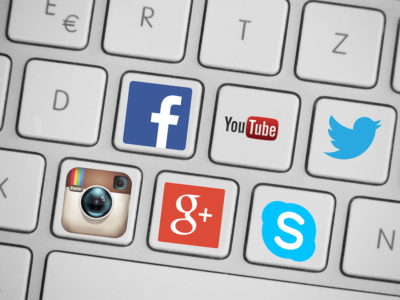We are all guilty of using social media as a method of ego-boosting. Well, at least the majority of us are. It only takes a minute to feel badly about yourself; it takes one look, one judgement, one rejection. Often times we turn to social media to reestablish our sense of worth via almost instant gratification. Whether it be through posting a bikini pic, changing a profile picture, or sending a funny tweet—most of us use social media as a form of validation in one way or another. But the real question is: How long does this “high” last? And what are the effects of this addictive temporary “healing”?
I am guilty of this healing. I am guilty of using this temporary Novocain. It feels great to be praised and acknowledged by social media. That recognition and happiness may last for several hours or even days. The truth is, however, that the happiness is very temporary. And once it subsides, you’re left wanting that high again.
It can be argued that not everyone uses social media for these purposes. Maybe you’re merely proud of your homemade acai bowl extravaganza and want to share with the world, or maybe you worked hard to land your dream internship and feel excited to announce it. But where do we draw the line? When does this go sour?
We turn to social media as a method of coping, and this can be both a great and horrible thing. In times of loss, it can be a powerful way for others to show support. But in another sense, it can be a way for people to seek attention that isn’t real. The virtual attention often doesn’t translate to reality. The same person that says “I’m so sorry! I am here if you ever need to talk!” in an Instagram comment might not follow up with that offer face to face.
“Often there is a pressure to be positive in social media spaces and I have talked to people that don’t hesitate to block or delete friends,” said social media expert Sarah Murray, who has a PhD from the University of Wisconsin-Madison. There really is no sympathy when it comes to these sites, especially anyone found even relatively annoying and this definitely turns on the pressure.
A real life example of someone who “faked” this happiness is Essena O’Neill. The internet sensation, widely known for her model-like Instagrams and blog posts recently decided to quit social media.
Social media can also lead to more sadness and even self-hate. After scrolling through a newsfeed for hours, you might feel a lowered sense of happiness, a greater negative presence of negative or degrading inner thoughts.
“There was a recent podcast of a woman who is suffering from pretty bad depression and was constantly posting happy, positive thoughts on social media…it was a ‘fake it until you believe it’ thing,’” Murray said. Nobody feels hot after staring at other people for hours. Or, maybe, you do. In that case, good for you. “Once I interviewed a woman who left social media because she didn’t have a job and was having trouble getting pregnant and she felt like all of her social media feeds were filled with people having success stories,” Murray said. People often portray themselves on social media as happy, well-off and successful, but many aren’t honest.
The solution to ending this vicious cycle of seeking constant validation over social media begins with being honest with yourself—being honest with your feelings, thoughts, desires and drive to post. Identify the truth behind your social media connection and realize it. If you feel you use social media for attention, take a step back and think about how long the satisfaction lasts and if it really fulfills the gratification you sought.
We don’t need social media to discover and identify our self-worth. If you struggle to find it, it’s not waiting for you on the internet. It’s waiting for you in your friends and family. And really, do you honestly care what Susie did on Friday night or how hot she looks? I thought so.
I know we all love social media, and I know we all probably won’t change our ways. But if you get anything out of this, I hope it’s that however social media makes you feel about yourself, and whatever you are currently using it for in terms of self-worth, ignore it. You’re definitely already awesome and we’re already competitive enough in real life, so why bring it to social media?
So post away (lets be real: reading an article on the Internet is not going to stop you from uploading an appropriately-timed #tbt). But make sure you don’t get too caught up in the game—because it’s one that no one can win.



















